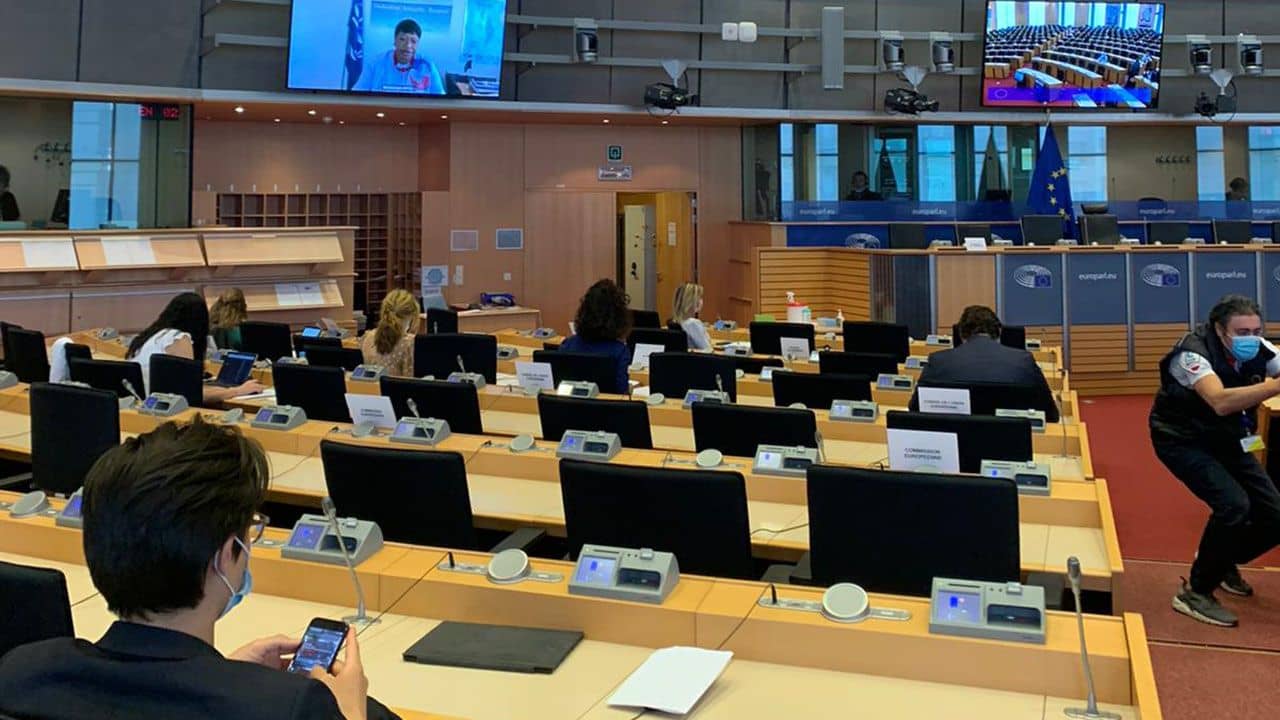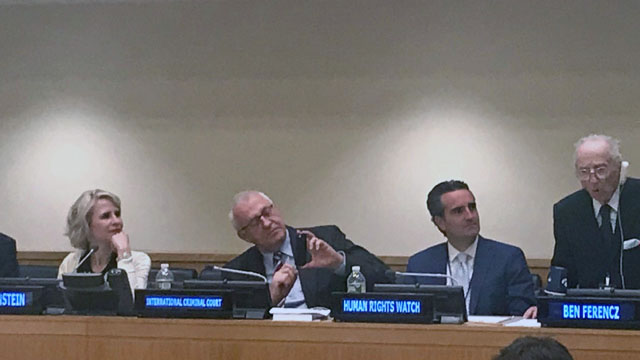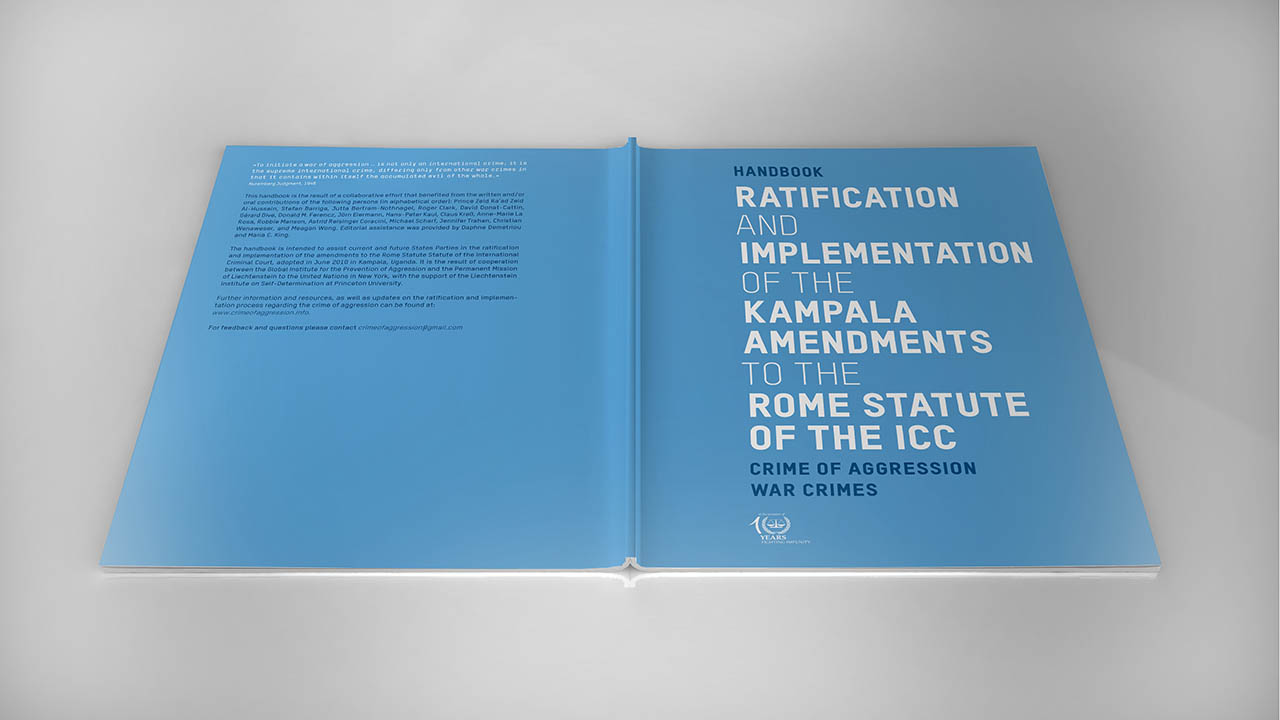New York, 29th April, 2014:
Peter Burian, State Secretary of the Ministry of Foreign and European Affairs of the Slovak Republic, deposited the instrument of ratification of the Kampala Amendments to the Rome Statute of the International Criminal Court (ICC) at the United Nations after the National Council of Slovakia agreed to the ratification of such Amendments on 26 March 2013 with a near-unanimous vote by the plenary.
Slovakia has thereby accepted to bind its nationals and its territory to the prohibition of the use of certain weapons in armed conflicts not of an international character, as well as to the criminalization of acts of aggression arising from the illegal use of force in international relations. Slovakia has become the 14th State to have ratified the Kampala Amendments on the Crime of Aggression. It is also the fourth Eastern European State and the seventh NATO Member State to do so. Parliamentarians for Global Action (PGA), a network of over 1300 Lawmakers from all regions of the world committed to the protection of human rights, including the human right to peace, welcomes this decision.
On 11 April 2002, Slovakia ratified the Rome Statute. Hence, Slovakia was one of the first sixty States to contribute to the entry into force of the Statute. Through this ratification, Slovakia has not only made an important contribution towards the goal of achieving 30 ratifications before 2017, but it also serves to consolidate ongoing global efforts to achieve universal ratification of the Kampala Amendments related to the Crime of Aggression. Most importantly, the ratification of the Kampala Amendments strengthens the international legal framework that prohibits the use of force and increases the guarantees of peace and of respect for the territorial integrity of the States Parties to the Rome Statute. Thirteen other nations from all regions of the world have ratified both Amendments to date - Liechtenstein, Samoa, Luxembourg, Estonia, Trinidad and Tobago, Germany, Botswana, Cyprus, Slovenia, Andorra, Uruguay, Belgium and Croatia.
PGA also wishes to recall that while entry into force of the ATT is and must be the most important immediate objective, ensuring wider participation in the ATT and its broad, effective implementation, is and must remain the over-arching goal.
PGA members have made the following statements:
The deposit by Slovakia of the Kampala Amendments arrives at the right moment when peace is still under heavy pressure and wars and military conflicts continue to threat the development in many countries and regions of the globe. I believe that the adoption of the Kampala Amendments in 2010 is one of the most significant legal accomplishments of all times. I have been a promoter and defender of the Kampala Amendments since the beginning, in the international level by personally nominating the Review Conference to the Nobel Peace Prize, and in the national level by promoting the domestic bill to ensure the implementation of such amendments. After the Workshop for the Universality of the Rome Statute of the ICC and the Kampala Amendments in the Pacific Region organized by Liechtenstein, New Zealand and Global Institute for the Prevention of Aggression on March 06-07 I await for New Zealand to become one of the first 30 nations to ratify the Amendments. Dr. Kennedy Graham, MP (New Zealand):
From San Jose, Costa Rica, I welcome Slovakia’s ratification of the Kampala Amendments. This is an essential step taken by Slovakia to ensure the activation of the jurisdiction of the ICC over the crime of aggression and to secure the strengthening the universality of the Rome Statute, as amended by the Kampala Amendments. Through the affirmation of the UN Charter’s principle prohibiting the illegal use of force, this ratification brings Slovakia to the forefront of peace-abiding nations. I have personally supported the ratification of the Kampala Amendments by Costa Rica in the Foreign Relations Committee, over which I preside as Chairperson, as well as in the Plenary of the Legislative Assembly. Moreover, and together with other PGA members in the region, we recently promoted a resolution in the Latin American Parliament requesting all Latin American MPs to call on their governments to ratify these Amendments as a way to promote the basic human right to peace in our respective countries. Dip. Oscar Alfaro Zamora, MP (Costa Rica):
By ratifying the Kampala Amendments, Slovakia sends an essential message to the world: no impunity can exist for those responsible for committing one of the most heinous of crimes, the crime of aggression. This historical step taken by Slovakia also demonstrates its strong commitment to the rule of law, peace and justice. While vestiges of past wars are not always easy to erase, the fact that nations around the world are now steadily taking concrete, legally binding steps formally to renounce the illegal use of force, moves us all further along the road to a more equitable, democratic and safer world. Mr. Mark Pritchard, MP (UK)











